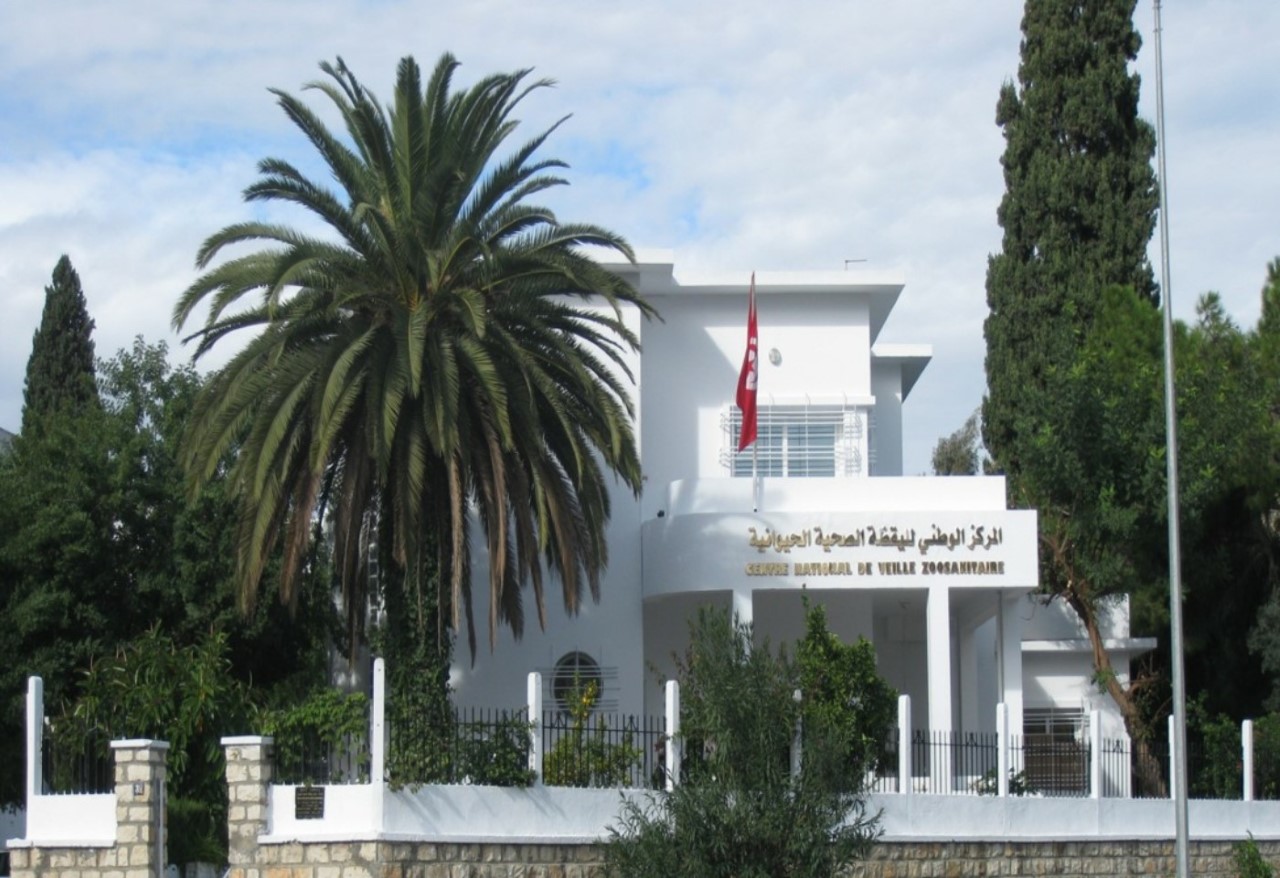



Through a procedure referred to as the “adapted procedure”, allowing the endorsement of a limited number of resolutions in the absence of a physical General Session, given the COVID-19 situation, Tunisia’s Centre National de Veille Zoosanitaire (CNVZ, or National Animal Health Surveillance Centre) was recently accredited as an OIE Collaborating Centre for Continuing Education and Capacity Building in the Veterinary Domain. The CNZV is a Tunisian public institution of an administrative nature, established in 2007.
Its main missions are:
By the very nature of its missions, the CNVZ constitutes a technical and scientific support for the veterinary services. Since its creation it has developed several activities in particular in the field of animal mobility, risk-based mapping, risk analysis, the establishment of databases, communication and continued education and skills development.
The CNVZ has often been called upon by the Tunisian Veterinary Services to carry out studies and provide the expertise necessary for the improvement of animal health and capacity building of veterinarians.
The CNVZ relies on a panel of technical referents and trainers with expertise in their fields to meet the pedagogical objectives of each training. It adopts educational approaches adapted to the different types of learners.
The CNVZ offers catalogued training courses dedicated to participants from different institutions and countries. The training courses cover several veterinary disciplines such as :
The CNVZ also offers targeted and bespoke (intra-organisational) training to meet the specific needs of veterinary institutions that are seeking for training that is adapted and contextualised to the expectations of learners and their institution.
As an OIE Collaborating Centre, the CNVZ is now in a position to respond to the specific needs of both French- and English-speaking African countries in terms of continuing education and capacity building in the veterinary domain.
All pictures (c) Centre National de Veille Zoosanitaire (CNVZ) 2019 – 2020.






